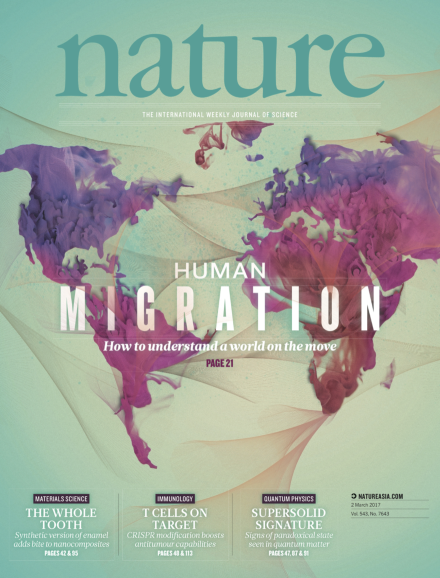Volume 543 Issue 7643, 2 March 2017
Editorial
World View
Research Highlights
Seven Days
News
Correction
News Feature
Comment
Books & Arts
Correspondence
News & Views
Review Article
Article
Letter
Erratum
Corrigendum
Erratum
Toolbox
Feature
-
Visa policy: Access denied
Career Guide:

